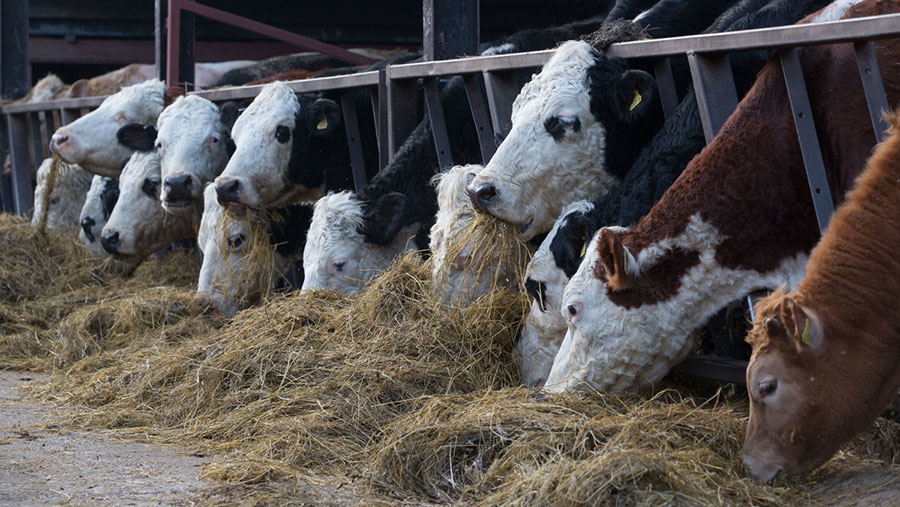Low-protein silage sparks starving stock warning
 © Tim Scrivener
© Tim Scrivener Cattle and sheep are at risk of slowly starving to death because of “disturbingly low” levels of protein in silage, warn scientists.
Researchers at Scotland’s Rural College issued the warning after analysing protein levels in silage samples.
A significant proportion of beef and sheep would be “severely short” of protein, with “major consequences on performance”.
See also: Livestock farmers’ guide to taking and analysing silage samples
If fed on the silage, it could “cause stock to slowly starve even through they might look full”.
Tests carried out by the Scottish Agricultural College, part of Scotland’s Rural College, found that more than a quarter of the analysed silage had insufficient protein for even a dry beef cow – and nearly half have a protein content below 10%.
In a normal year, silage will have a protein content of 13-14%.
The situation in England and Wales appears to be similar.
Rumenco, who supply feed supplements, minerals and nutritional products for livestock, have found the silage they tested had an average protein level of just 11%.
Senior beef specialist Basil Lowman said: “So far press articles on this year’s silage quality have reported good results with both energy and protein levels being higher compared with last year.
“Energy levels in the silage are average to good but protein levels are disturbingly low”
Basil Lowman, Scottish Agricultural College
“However these reports, while based on large numbers of samples, have mainly been collected from English dairy herds.
“In comparison our figures, for solely beef and sheep units show a different, worrying story.
“Energy levels in the silage are average to good but protein levels are disturbingly low.”
With very low protein silages the animal’s rumen becomes completely blocked with partially digested food and the animal effectively starves to death, known as rumen compaction.
However, a simple indicator that will indicate if an animal’s protein is deficient is the consistency of its dung.
On a protein deficient diet the animal’s dung will be firm, dry and look like solid, mini-hay bales.
Dr Bowman strongly advised farmers and crofters to get their silage analysed so they can supplement the feed if necessary.
